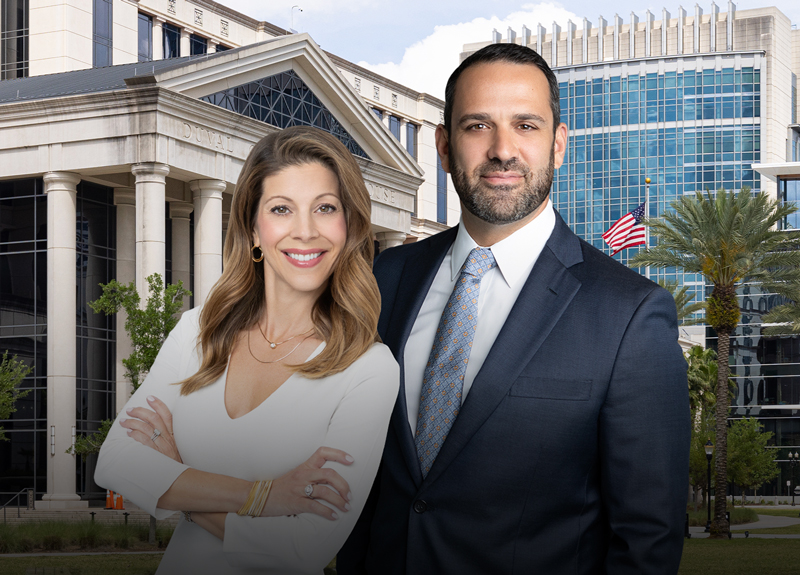In Jacksonville, Florida, our elderly loved ones are integral to our families and communities. When they require specialized care we cannot provide, we entrust them to skilled nursing facilities, expecting them to receive the compassionate and respectful treatment they deserve.
Regrettably, some nursing homes fall short of these expectations, resorting to improper restraints instead of providing proper care. The World Health Organization reports that one in six individuals over 60 years old has suffered some form of abuse in community settings, with two-thirds of nursing home staff members admitting to committing abuse over the past year.
Your family member is entitled to dignity and quality care, and you deserve to have confidence in their well-being. This is where Baggett Law Personal Injury Lawyers can step in. Our dedicated Jacksonville nursing home abuse attorneys are prepared to protect the rights of your loved one.
Should you have concerns that your family member is being subjected to improper restraints or any form of abuse or neglect in a nursing home, don’t hesitate to reach out to us. We are committed to rectifying this injustice. Contact our Jacksonville, FL law firm at (904) 396-1100 for a free initial consultation.
How Our Nursing Home Abuse Attorneys Can Help If Your Loved One Has Suffered Injuries Due to Improper Restraints in Jacksonville, FL
At Baggett Law Personal Injury Lawyers, the notion of a beloved family member suffering due to being restrained inappropriately deeply troubles us. Our dedication to seeking justice for families like yours is unwavering.
Given the increasing number of elderly individuals in our population, it’s imperative to uphold high standards of safety and decency in Florida’s nursing homes. It’s our responsibility to ensure accountability when these institutions fail to protect our community’s most vulnerable members.
When you hire our Jacksonville nursing home abuse lawyers to represent you, we will:
- Investigate to understand what happened
- Review medical records and other evidence
- Consult with experts
- Handle settlement discussions
- Represent you in court if needed
We encourage you to reach out to us for a free consultation with one of our knowledgeable and empathetic nursing home abuse attorneys. We’re ready to examine the details of your situation and offer the necessary legal guidance during this challenging period.
What Is a Physical Restraint, and How Is it Used in a Nursing Home?
A physical restraint involves the use of any mechanical or physical device, material, or equipment attached to or near a person’s body to restrict their movement or immobilize a part of their body. It’s designed in such a way that the individual cannot easily remove it, effectively limiting their freedom to move.
In some nursing homes, restraints might be employed as a safety precaution in exceptional circumstances to prevent elderly residents from injuring themselves or others. However, the challenge arises when the deployment of these restraints is inadequately supervised, turning them into a fallback for overburdened staff.
Staff members might rely on restraints when faced with heavy workloads, particularly in understaffed facilities, using them to manage residents more conveniently or to compensate for inadequate or absent training provided by the nursing home. The reasons behind using physical restraints in these settings often reflect a deficiency in genuine care rather than a legitimate need for their use.
What Are the Different Types of Physical Restraints?
When considering physical restraints, you might envision scenarios often depicted in films where patients are handcuffed to hospital beds awaiting law enforcement or strapped to gurneys in a state of agitation.
In reality, the medical field employs a variety of restraint types, including:
- Hand mitts
- Soft ties
- BeltoVests
- Specialized chairs
- Lap belts
- Bed rails
While these devices serve legitimate medical purposes for specific health concerns, there’s a risk of misuse by caregivers who may be negligent or abusive. Moreover, physical restraints can sometimes be improvised using everyday items found in a resident’s room, such as belts, nylon stockings, or neckties, further blurring the line between necessary safety measures and potential abuse.
What Are the Risks Associated With Using Restraints in Nursing Homes?
The employment of physical restraints on the elderly can introduce numerous hazards.
Research from the National Center for Biotechnology Information highlights the potential for severe medical issues arising from the use of physical restraints in nursing homes, including:
- Bruises
- Ulcers
- Respiratory complications
- Incontinence
- Constipation
- Malnutrition or undernutrition
- Dehydration
- Diminished muscle strength
- Loss of balance
This research further indicates an elevated mortality risk linked to restraint-induced strangulations or severe injuries like fractures and head trauma.
Beyond physical detriments, the psychological impact of restraint use on the elderly can be profound. Individuals subjected to improper restraint usage may experience depression, anxiety, and social withdrawal. This holds true even for those with conditions such as dementia, suggesting that mental distress from continuous restraint is significant regardless of cognitive impairment.
Contact Our Jacksonville Nursing Home Elderly Restraints Attorneys
If you or a loved one suffered injuries from improper restraint use in a nursing home, reach out to Baggett Law Personal Injury Lawyers for support. With a proven track record of securing millions in financial awards for our clients, our Jacksonville, FL personal injury lawyers are prepared to advocate on your behalf.
Contact our law offices today at (904) 396-1100 to schedule your complimentary case evaluation and discover how we can assist you in navigating the aftermath of nursing home abuse.

